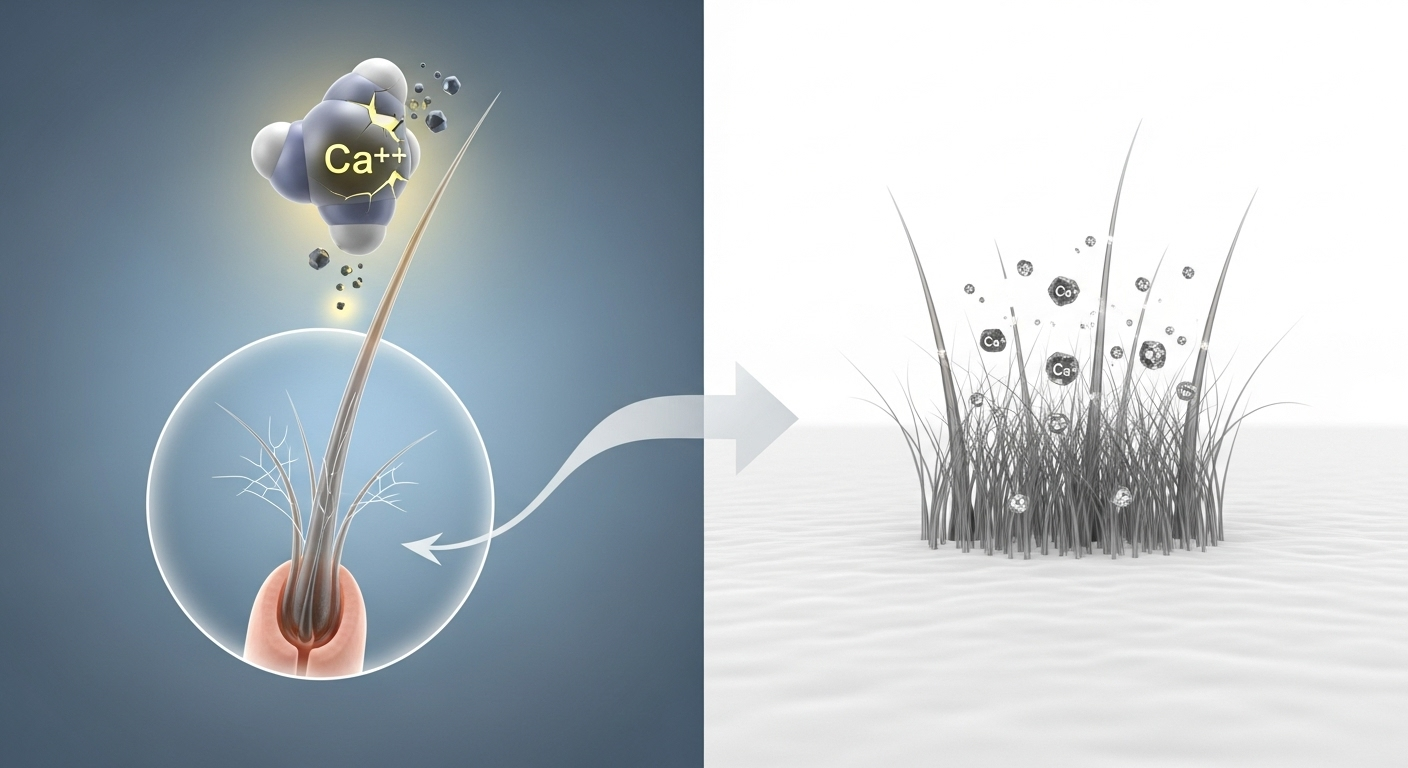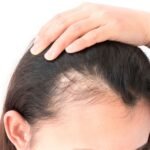Can Low Calcium Cause Hair Loss? Hair loss is a common concern, and many factors contribute to thinning or shedding hair. One often overlooked cause is calcium deficiency. But how exactly does low calcium impact hair health? This article delves into the connection between calcium levels and hair loss, explaining the underlying mechanisms, symptoms, and …
Can Low Calcium Cause Hair Loss? Hair loss is a common concern, and many factors contribute to thinning or shedding hair. One often overlooked cause is calcium deficiency. But how exactly does low calcium impact hair health? This article delves into the connection between calcium levels and hair loss, explaining the underlying mechanisms, symptoms, and how to address it.
By understanding the role of calcium, you can take steps to prevent further damage and promote healthy hair growth.
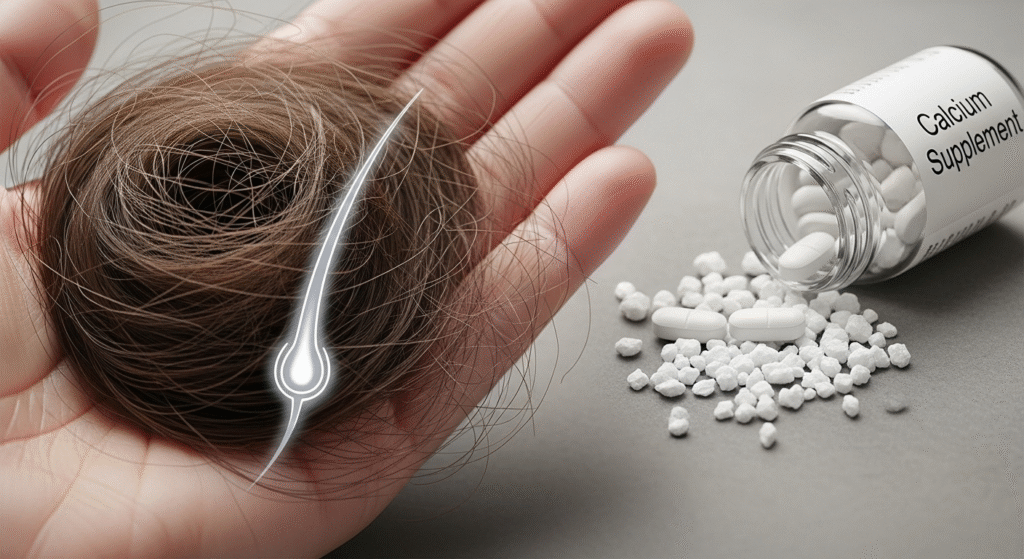
The Role of Calcium in Hair Health
Essential Functions of Calcium in the Body
Calcium plays a vital role in maintaining various bodily functions, making it essential for overall health. Some of its primary functions include:
- Bone and dental health: Calcium helps in the formation and maintenance of strong bones and teeth.
- Muscle function and nerve transmission: It supports muscle contraction and the transmission of nerve impulses.
- Cellular signaling and hormonal regulation: Calcium regulates many important processes, including hormone secretion, which affects hair growth cycles.
While calcium’s importance in bone and muscle health is well-known, its impact on hair health is equally crucial but often underestimated.
Calcium’s Impact on Hair Follicles
Calcium plays a crucial role in hair growth, impacting the hair follicle‘s function. Hair growth occurs in cycles, and calcium deficiency may interfere with these cycles. The lack of sufficient calcium can weaken hair follicles, leading to dry, brittle hair and even hair loss. Maintaining optimal calcium levels ensures the nourishment of hair follicles, helping them thrive and produce strong, healthy hair.
Symptoms of Calcium Deficiency
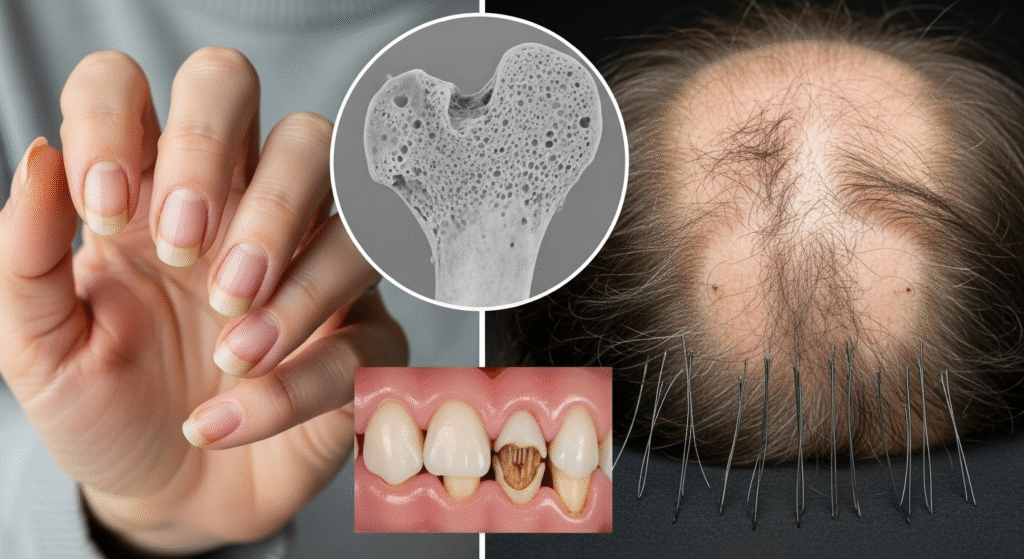
Recognizing Hypocalcemia
Calcium deficiency, known medically as hypocalcemia, can manifest in various symptoms, including those related to hair health. If you’re experiencing any of the following signs, it might be time to check your calcium levels:
- Dry, brittle hair: Hair becomes weak and more prone to breakage.
- Hair thinning or patchy loss: Calcium deficiency may cause hair to thin or fall out in patches.
- Coarse hair texture: Hair may lose its softness, becoming rough and dry.
- Other signs: Muscle cramps, fatigue, and skin issues are common in people with calcium deficiency.
Diagnostic Approach: Can Low Calcium Cause Hair Loss
If you suspect that low calcium is contributing to hair loss, it’s crucial to get a proper diagnosis. Blood tests can help determine if your calcium levels are low. Additionally, your healthcare provider will assess your dietary intake and absorption efficiency, as deficiencies may also result from poor nutrition or issues with calcium absorption.
Conditions Linked to Calcium Deficiency and Hair Loss
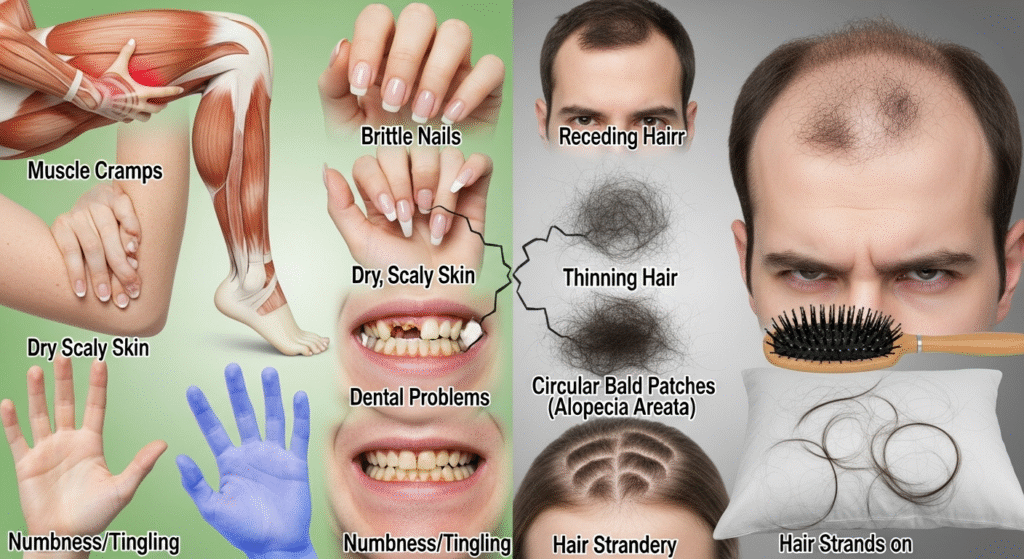
Polycystic Ovary Syndrome (PCOS)
PCOS is a hormonal disorder that affects many women and is often associated with irregular periods and infertility. Studies have shown that women with PCOS are at a higher risk of calcium deficiency due to insulin resistance, which may impact hair health. If you’re dealing with hair thinning along with PCOS, it may be worth considering calcium levels as part of the equation.
Hyperparathyroidism
Hyperparathyroidism, a condition where the parathyroid glands produce too much hormone, can lead to elevated calcium levels in the blood. Paradoxically, this condition may also contribute to hair loss. Understanding the mechanisms behind this imbalance can help in managing both calcium levels and hair health.
Addressing Calcium Deficiency for Hair Health
Dietary Sources of Calcium
The good news is that you can boost your calcium levels naturally through diet. Include the following calcium-rich foods in your meals:
- Dairy products: Milk, cheese, and yogurt are excellent sources of calcium.
- Leafy greens: Kale, broccoli, and spinach provide a plant-based calcium boost.
- Fortified foods: Some cereals, plant-based milks, and juices are fortified with calcium to support bone and hair health.
Supplements and Dosage Recommendations
If your diet alone isn’t providing enough calcium, supplements can help. However, it’s important to consult with a healthcare provider before starting any supplementation. The recommended daily intake for adults varies, but most people need about 1,000 mg of calcium per day. Calcium supplements come in various forms, including calcium carbonate and calcium citrate, and your healthcare provider can advise on the best option for you.
Lifestyle Modifications
While increasing calcium intake is crucial, it’s also important to ensure your body can properly absorb it. For better absorption, make sure you’re also getting enough vitamin D, which helps the body process calcium. Avoid excessive caffeine, as it can interfere with calcium absorption.
FAQs
Can calcium supplements reverse hair loss?
Calcium supplements can help restore calcium levels in your body, potentially improving the condition of your hair. However, it’s important to note that hair loss due to calcium deficiency may take some time to reverse, and other factors may also be contributing to hair thinning.
How long does it take to see improvements?
The time it takes to see noticeable improvements in hair health can vary. On average, it may take anywhere from 2 to 3 months for hair growth to show significant improvement, but individual results depend on various factors like age, overall health, and severity of the deficiency.
Are there risks associated with calcium supplementation?
Taking calcium supplements in excess can lead to kidney stones and other health issues. Always consult with a healthcare provider to determine the appropriate dosage for your specific needs.
Conclusion
While low calcium levels can contribute to hair loss, it’s often just one factor in a complex issue. By addressing calcium deficiency through diet, supplements, and lifestyle modifications, you can support your hair health and promote stronger, healthier hair. If you’re unsure whether calcium deficiency is affecting your hair, consult a healthcare provider for personalized advice and treatment.
If you’re concerned about calcium deficiency and its effects on your hair, consider booking a consultation with Dr. Uzma Irfan, an ISHRS-certified surgeon in Islamabad today. They can assess your calcium levels, provide personalized recommendations, and help you restore your hair health.

